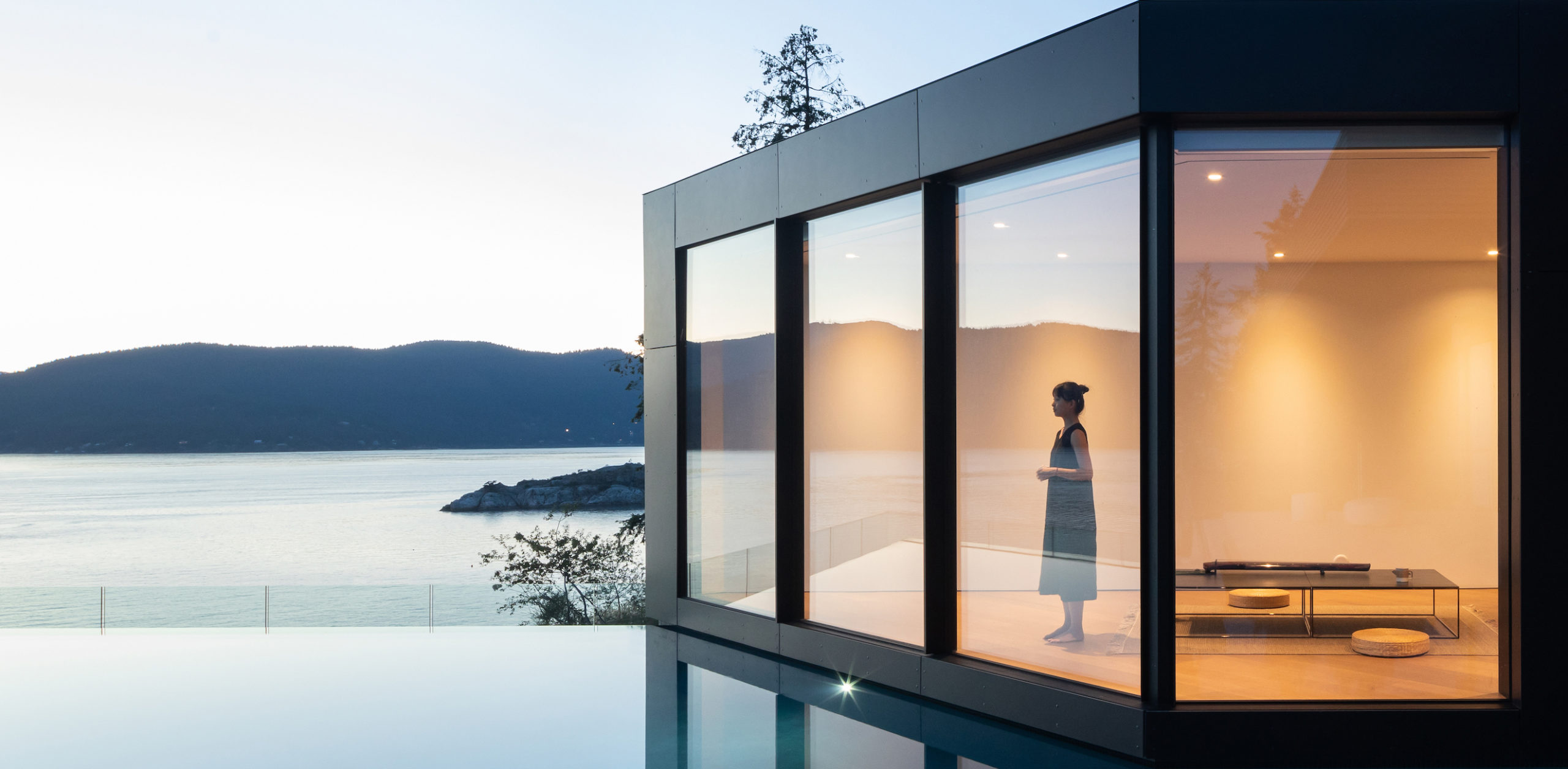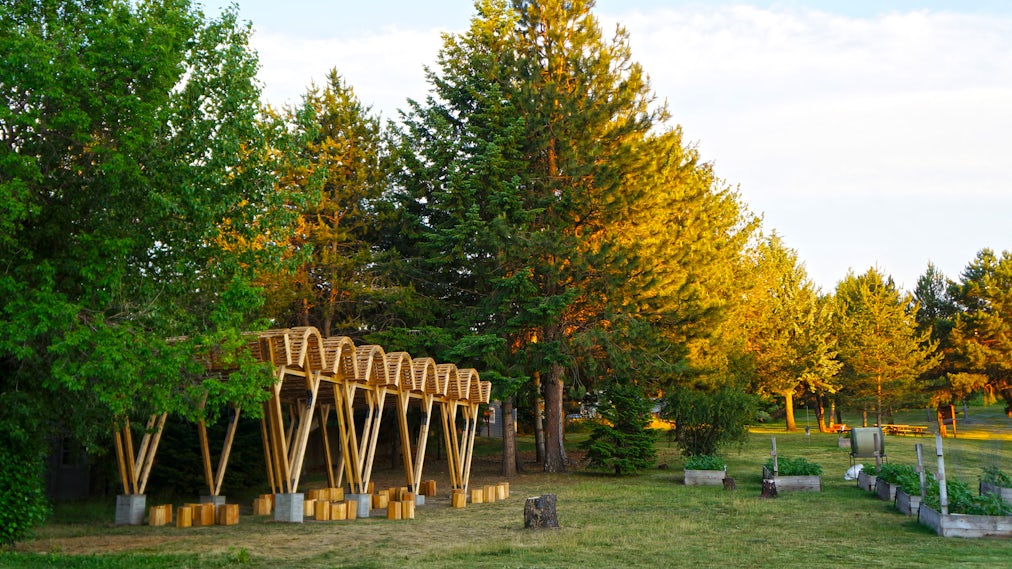Lixia office culture center – is a new landmark office space for the Group. It is based on the ink paintings without color of rivers and cities, mountains and water, and amounts of mountains and hills, to show the oriental art and aesthetics, and deeply experience the convergence of Oriental humanities in the mysterious and illusory space of concretization. Moreover, designers use the decomposition, reorganization and collision of texture and material to build a simple and lively volume.
Architizer chatted with Muchuan Xu from Vantree Design to learn more about this project.
Architizer: What inspired the initial concept for your design?
The project needs to meet the needs of employees in modern state-owned enterprises. By using of wood, plants and other ecological materials, it creates an open, warm, humanized and international indoor, and designs a large number of community spaces far beyond the traditional office, creating a delicate and comfortable working environment.
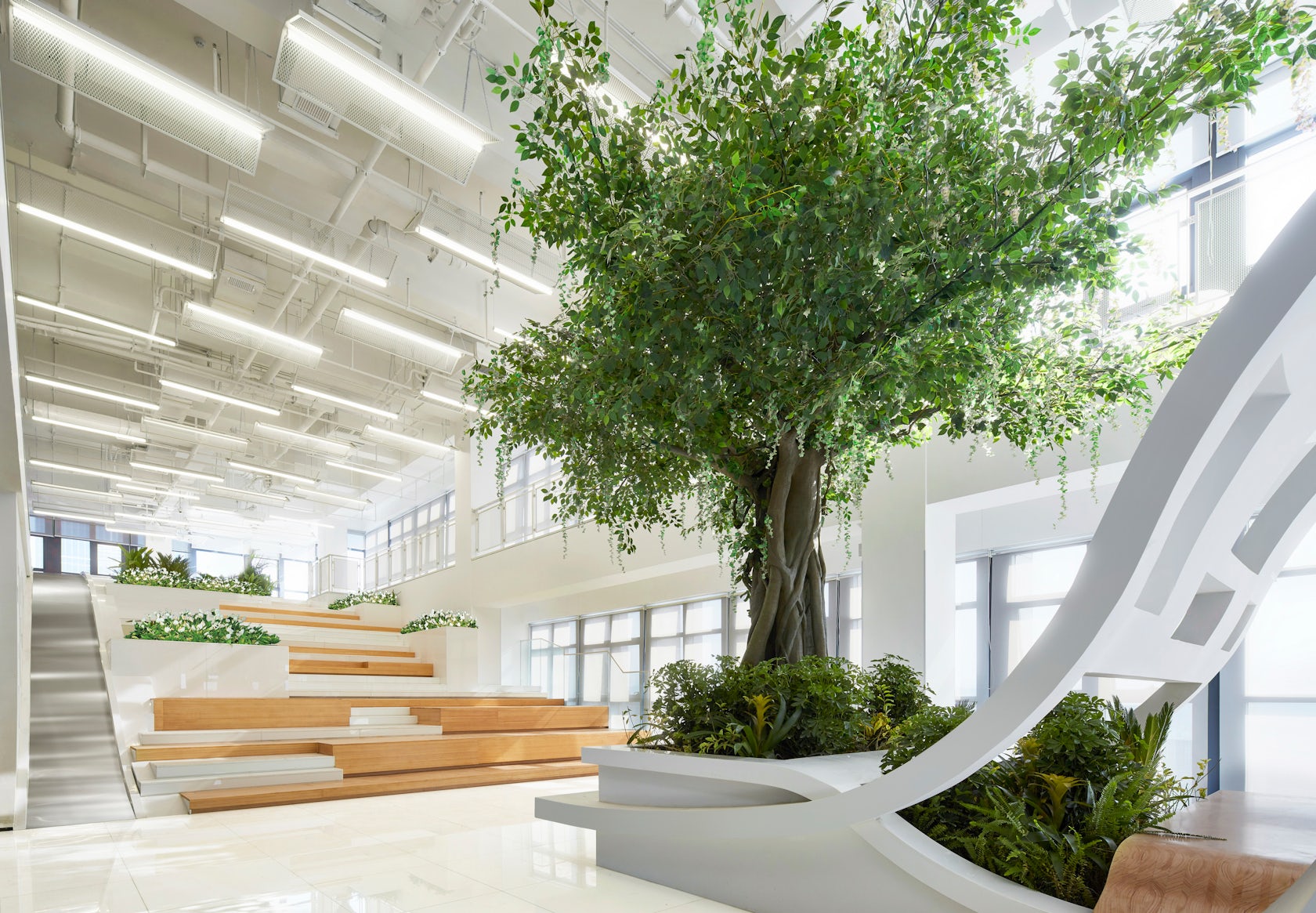
© Vantree Design
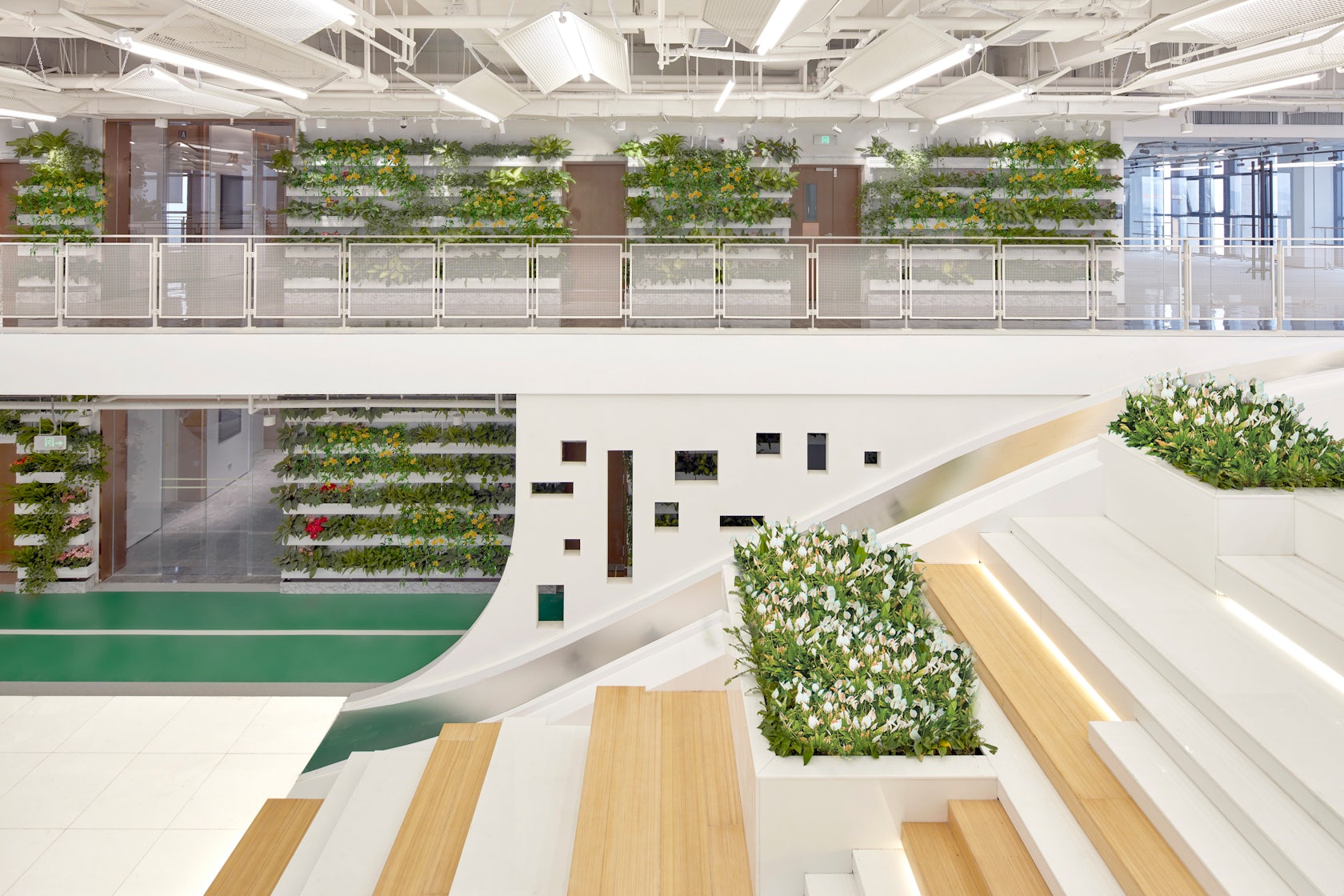
© Vantree Design
This project won in the 10th Annual A+Awards! What do you believe are the standout components that made your project win?
The project needs to seek urban integration in Jinan Spring City to realize the convergence of tradition and modernity and break through the mode and structure of traditional state-owned offices. Through the analysis of the color tone, material and elements of the design, combined with the needs of the employees, the designer reorganizes the relationship of the streamlines, reconstructs the space blocks, creates the layering and artistic sense of the three-dimensional space, and constructs the office art atmosphere entrusted with the mission of the future era.

© Vantree Design
What was the greatest design challenge you faced during the project, and how did you navigate it?
Breaking through the mode and structure of traditional state-owned offices and creating an office environment with the mission of the future era is the characteristic of this project, and also the greatest challenge. Jinan is a compatible with old and new city with mountains as its shape, rivers as muscles and bones, and springs as soul, blooms its color and life. How to extract elements suitable for the project from natural imagery, which used to decompose, reorganize and dialogue to interpret the new era “community office”. Finally, designers uses the ink mountain paintings without color as the medium, and uses the large-area artificial stone, metal lines and green to form a spatial visual contrast, to build a terse, hop and vibrant office.
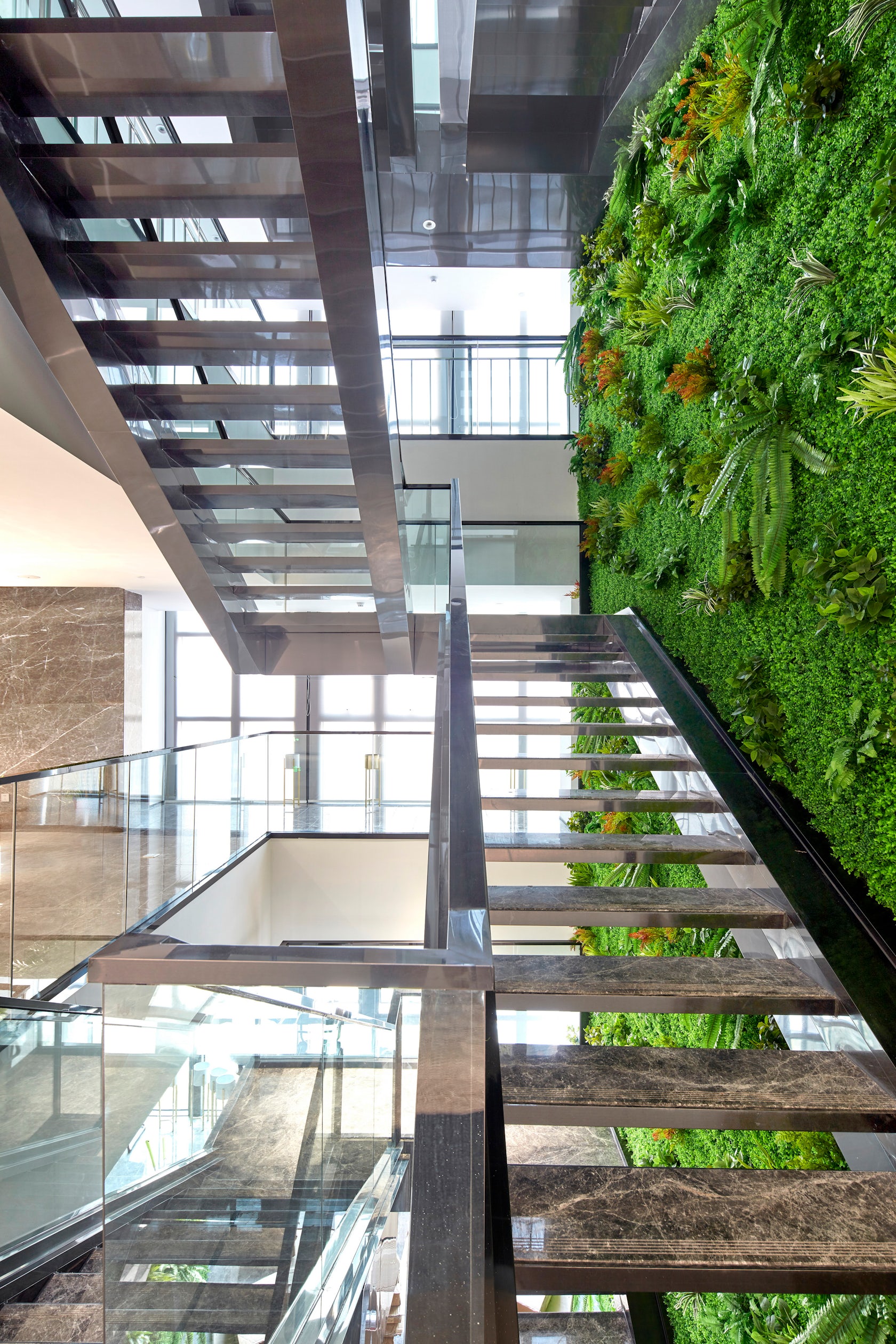
© Vantree Design
How did the context of your project — environmental, social or cultural — influence your design?
The noisy and turbulent living in the urban forest makes a depressing emotion to the daily work. Facing the limitations and formality of the central business district, people begin to pursue a healthier, greener and more humanized office environment. Both functionally and psychologically, there is a higher priority.
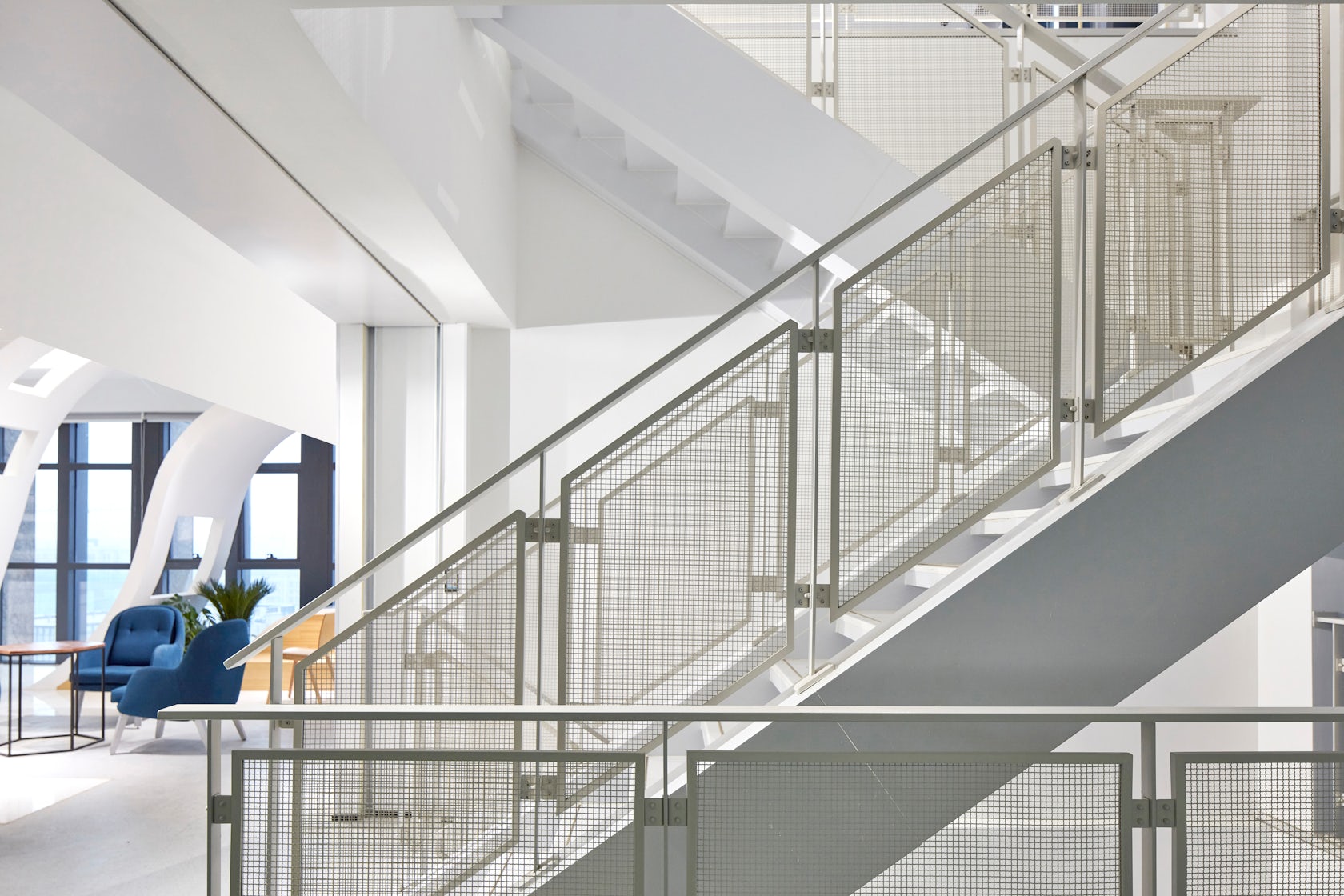
© Vantree Design
What drove the selection of materials used in the project?
The reason why we use sustainable materials such as wood with warm colors and plants is that we need to organically combine the indoor space with the scenery outside the window in terms of viewing, modeling and theme, so as to let people feel comfortably in nature, fit the Group’s humanistic spirit and reflect humanistic care.
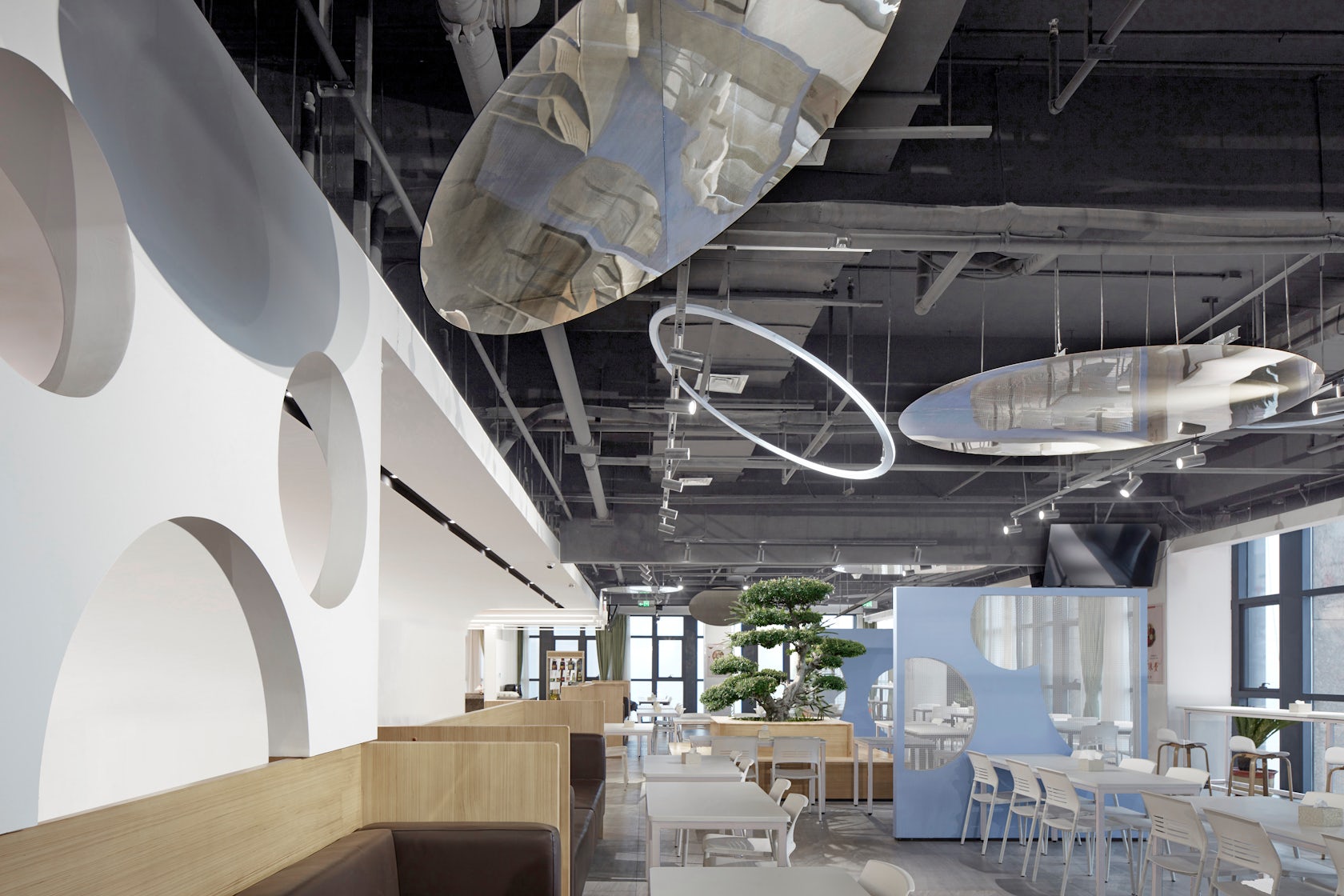
© Vantree Design
How important was sustainability as a design criteria as you worked on this project?
Sustainability runs through the design method to describe the impression of corporate culture and urban life, including the functional distribution and reconstruction of space, the use of shaped and color, the adjustment of streamline and visual relationship, and so on. For example, the sustainable large ladder space creates an open and interactive shared office space through plenty of plants and wooden ladder with shaped of staggered ribbons, which not only activates the vertical streamline of the two floors, but also practices the environmental protection concept of the enterprise to create an office environment full of humanistic brilliance.
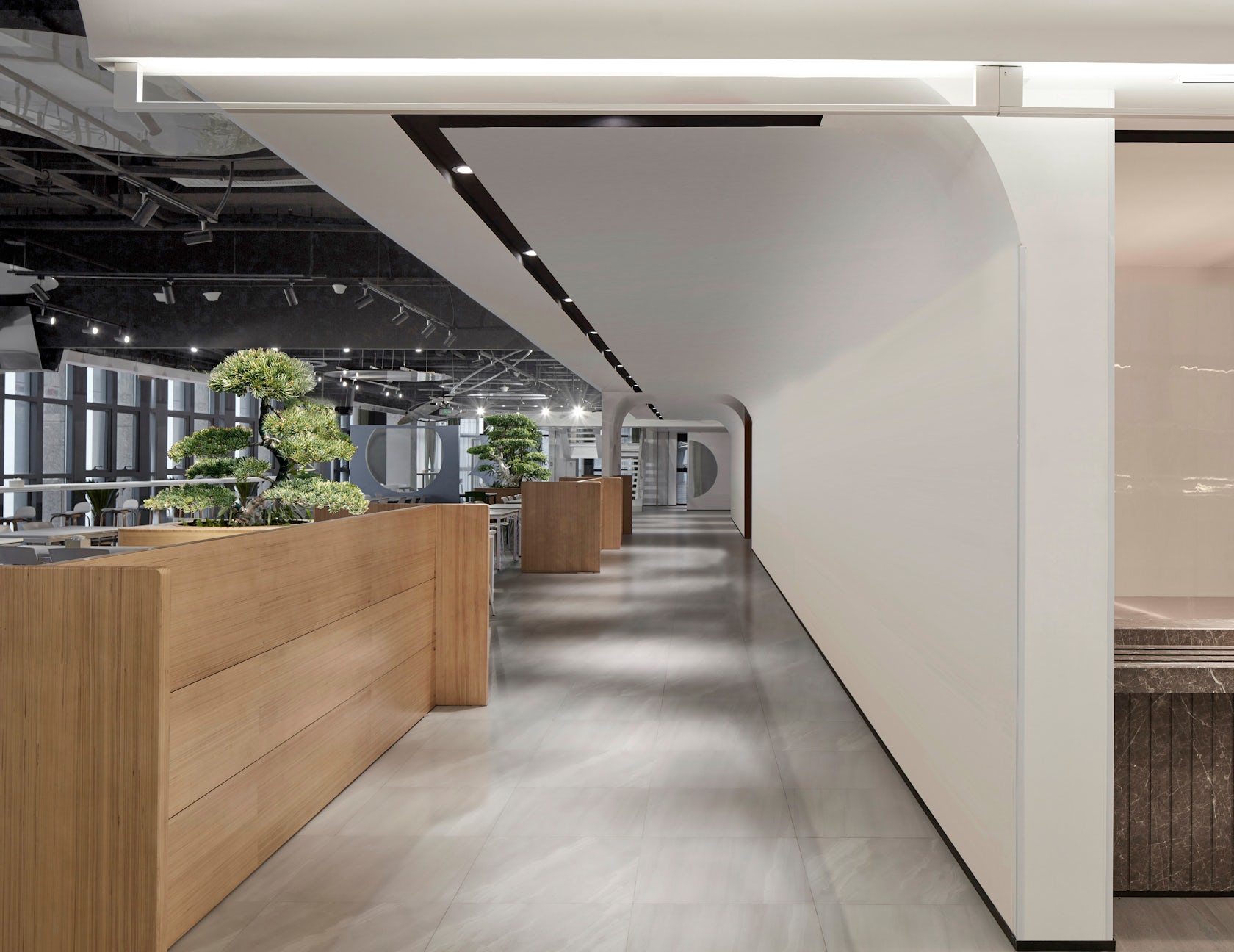
© Vantree Design
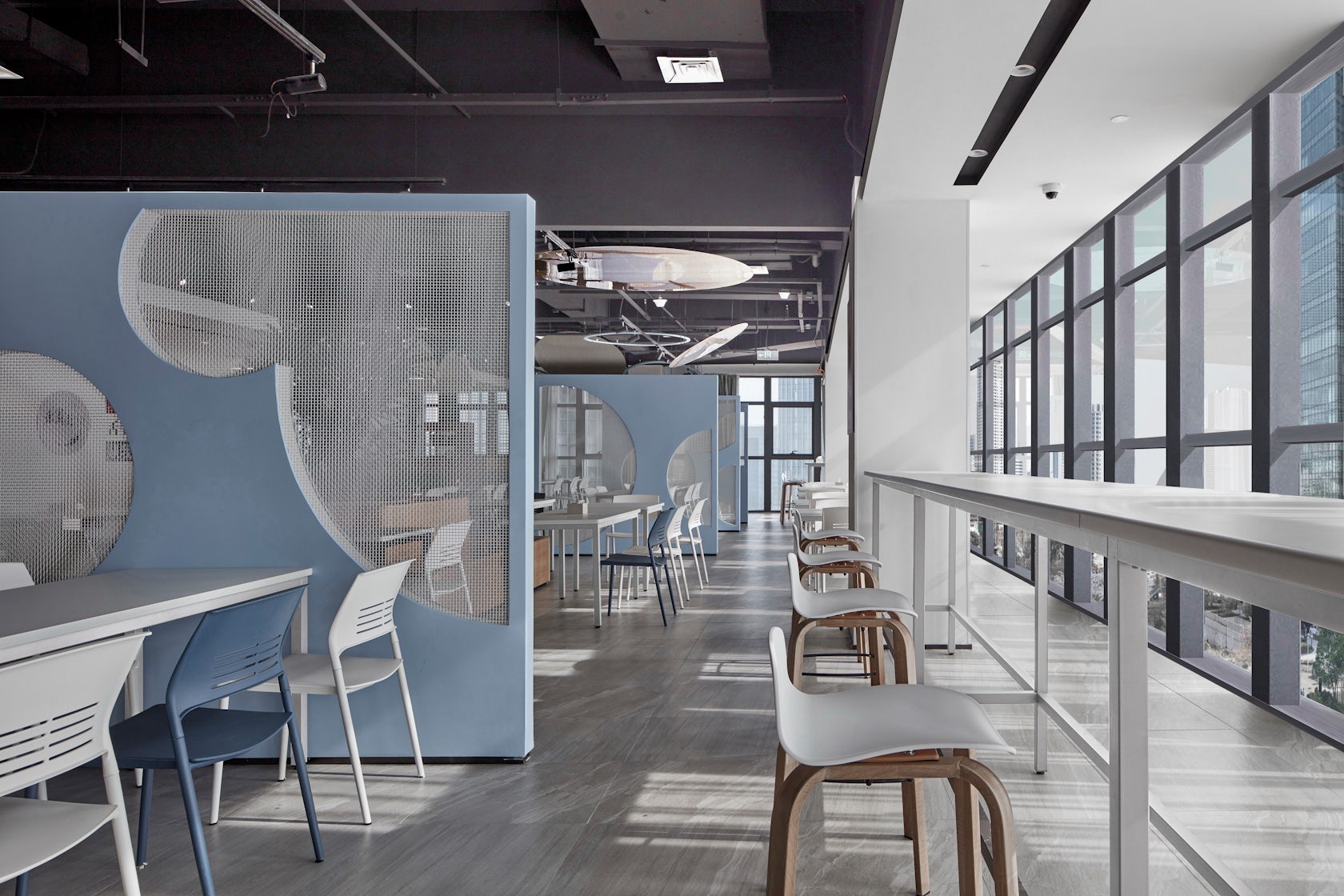
© Vantree Design
How have your clients responded to the finished project?
After the project is put into service, it gives our client novelty, softness and bold color and vision to maximize freedom and interaction. They said that they were in an office full of imagination and vitality, which brought great optimization to their working mode, and realized the open and efficient office culture and they can coexist with the nature indoors.
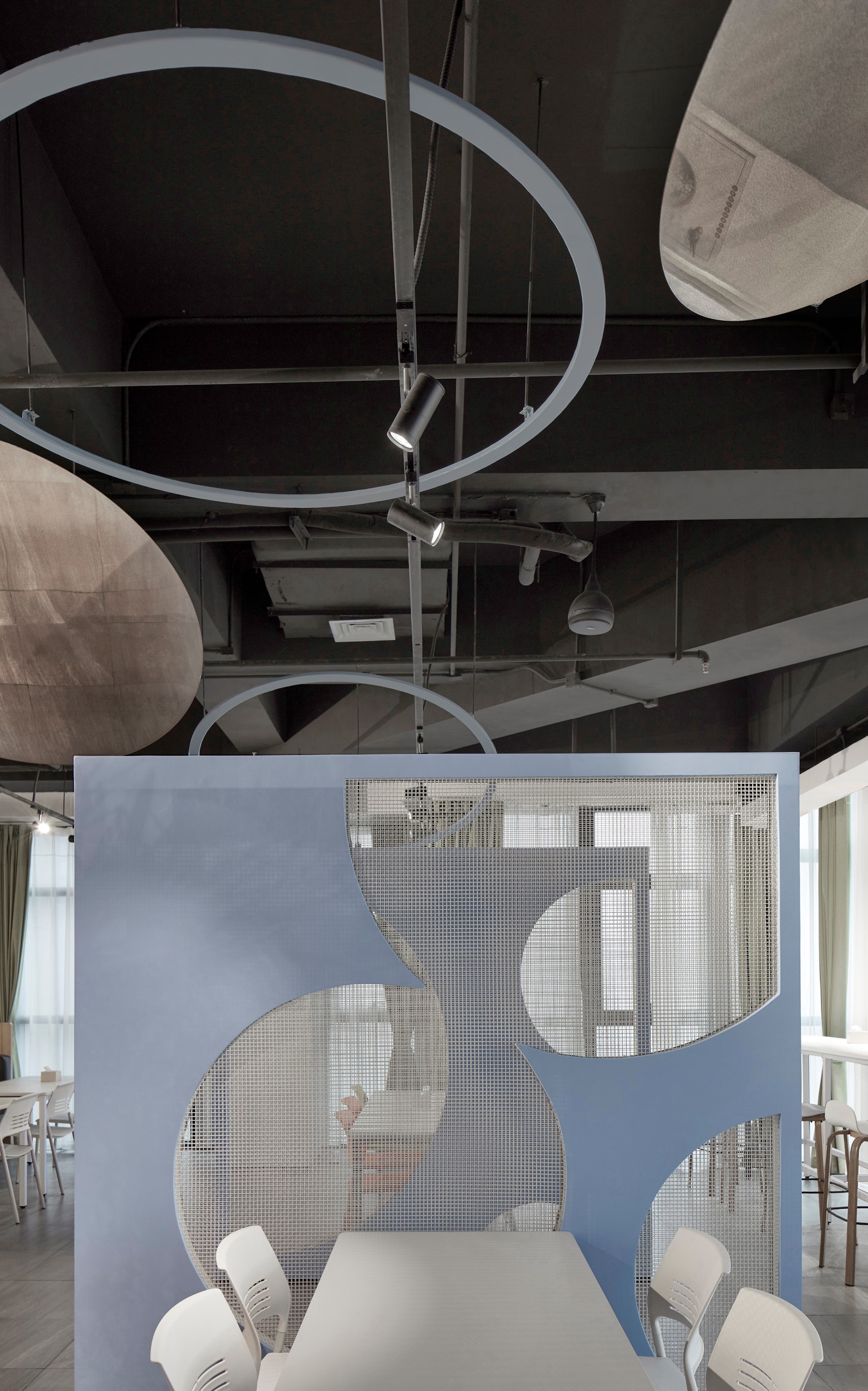
© Vantree Design
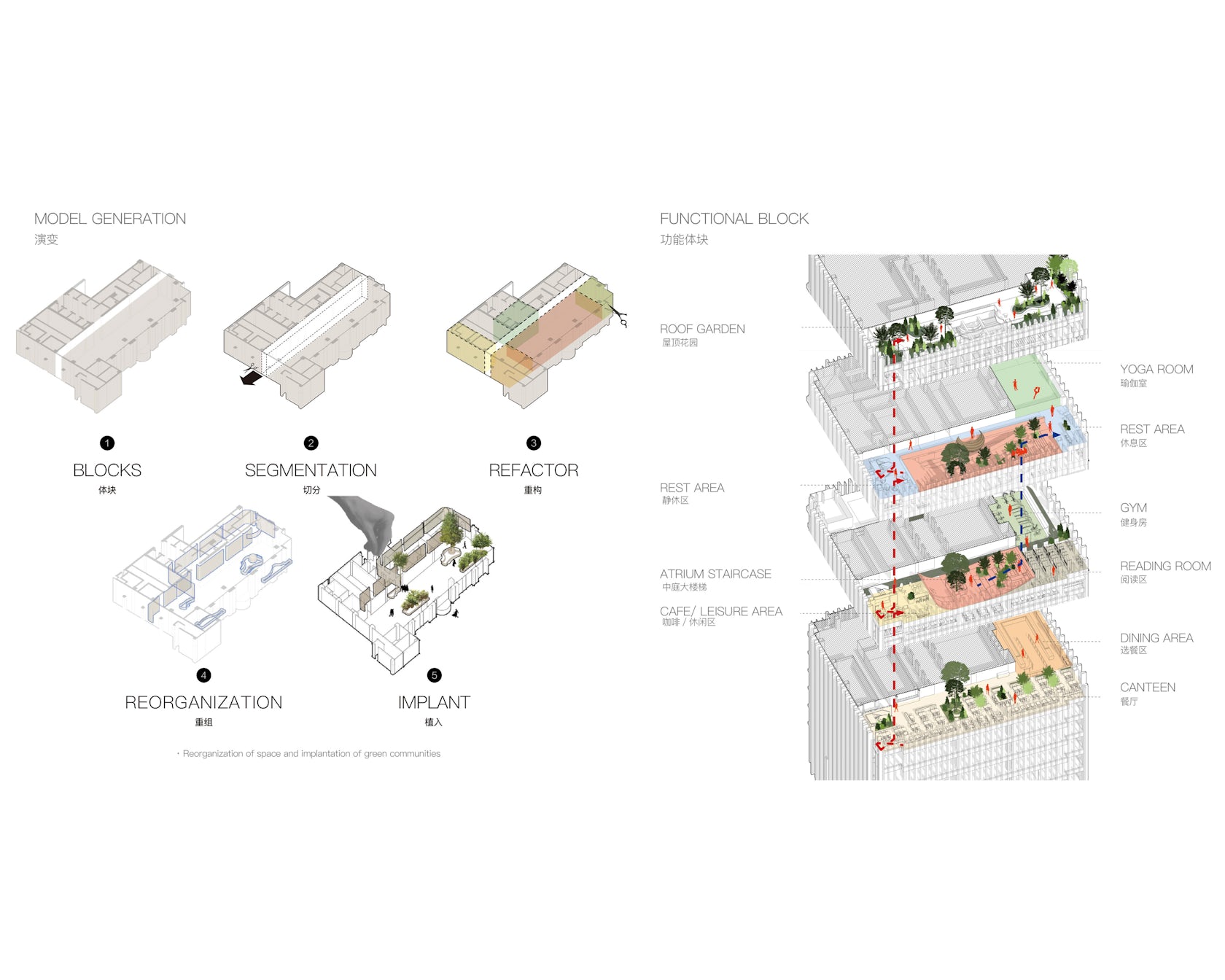
© Vantree Design
How do you believe this project represents you or your firm as a whole?
According to different functional attributes, starting from the employees’ use experience, the natural scenery will be brought into the interior through the transformation of the space and weakening the sense of space distance. Weakening the hierarchical boundary of space and enriching the diversity of space from the perspective of vision and streamline can show that our design philosophy attaches great importance to people-oriented, scientific and artistic grasp of the relationship and interaction of various elements in the interior design, so as to meet the combination of people’s material and spiritual life.
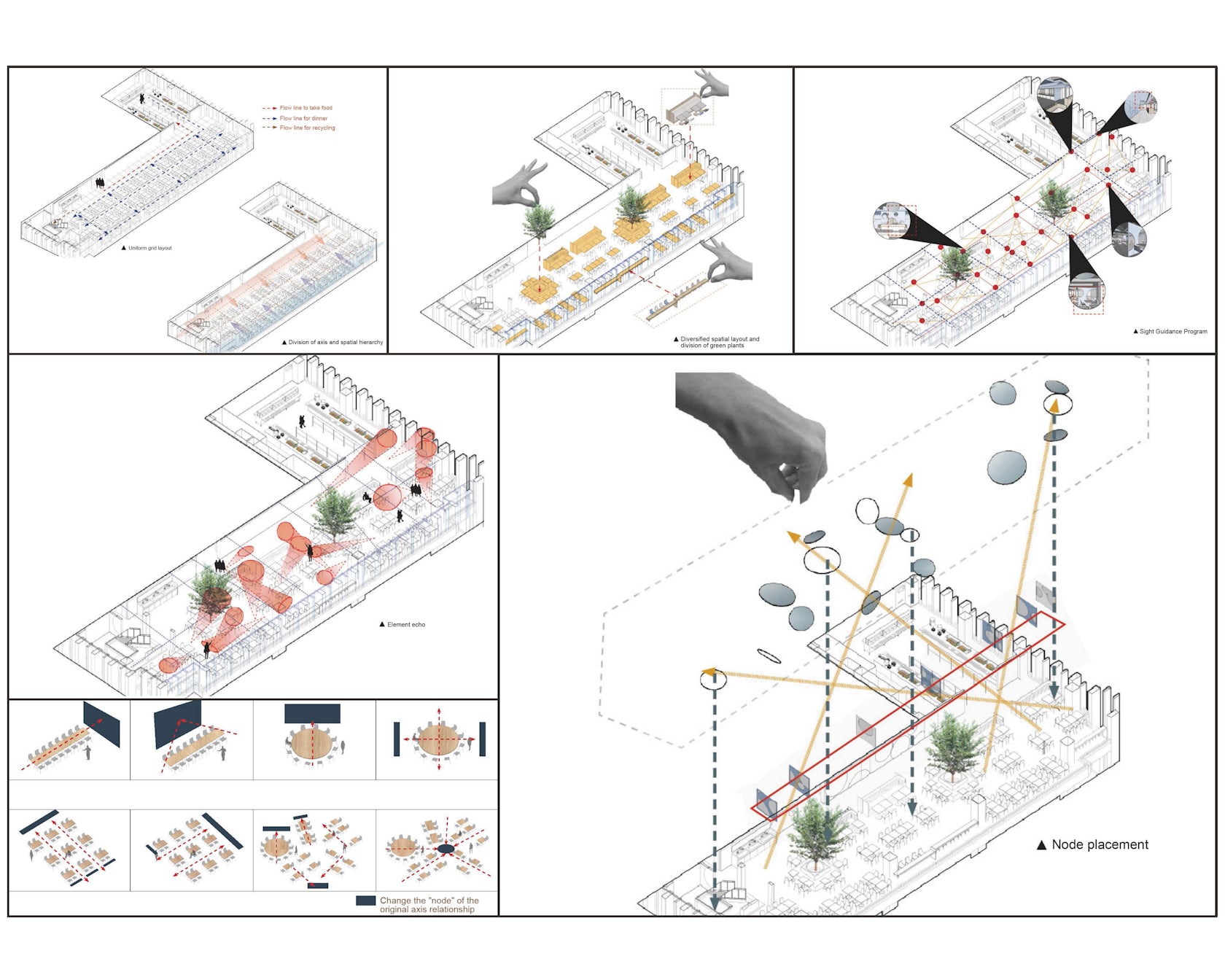
© Vantree Design
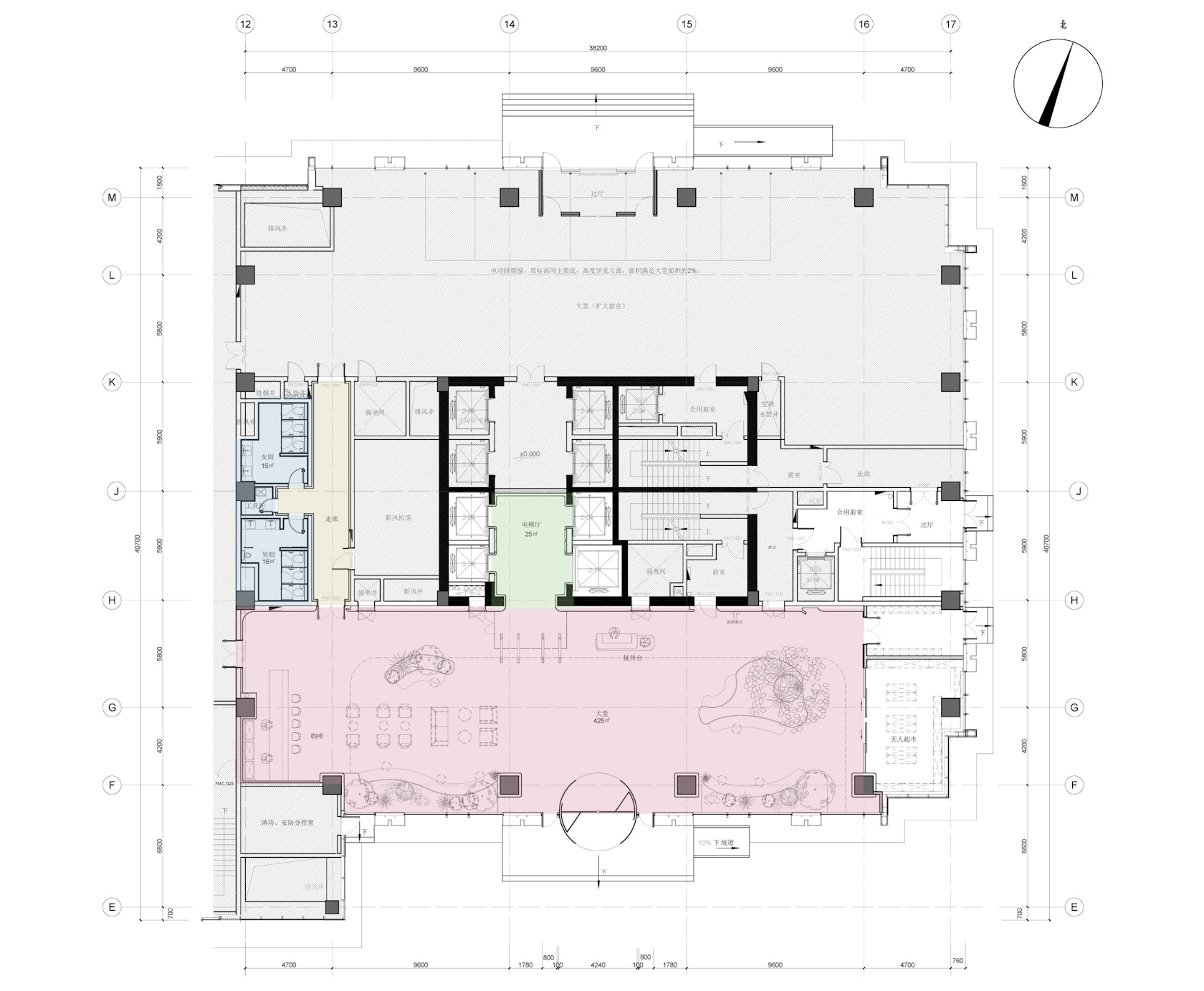
© Vantree Design
Team Members
Minxi Cai, YanXin, Ruobing Hou, Shangzhao Yang, Zhongning Zhang, Xiaofeng Li, Guanbao Ye, Honglei Song
Consultants
Planning and Design Department of Jinan Lixia Holding Group Co.,LTD
For more on Lixia office culture center please visit the in-depth project page on Architizer.






 Lixia office culture center
Lixia office culture center 